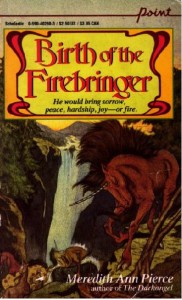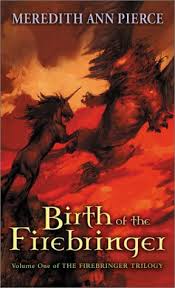A writer friend of mine has cautioned me about borrowing storylines too faithfully from real life. Her words of caution read as follows: “Fiction has to make sense; reality doesn’t.”
If a story doesn’t hold together–if information is missing so that readers don’t understand why or how important events happened, if characters undergo situations without learning or growing or changing in any meaningful way, if the conclusion doesn’t leave readers with a sense of satisfaction–it’s considered a failure on behalf of the writer. But these sort of things happen in real life all the time.
Readers who pick up a murder mystery story can rest assured that by the end of the book, they’re going to know whodunnit (and usually how and why). Real life, on the other hand, is filled with examples of murders that were never solved, missing persons that were never found, and criminals who were never brought to justice. These situations, while realistic (indeed, real), don’t make for satisfying murder mystery stories.
That’s not to say it’s impossible to write a successful story in which a mystery remains unsolved – I think of Minority Report, where the hero’s missing (and never found) child provides motivation for his decisions – but the plot of Minority Report is not centered on the missing son.
Another important factor to consider in fiction is suspension of disbelief. If a character or plot point is too outrageous or implausible, it can shock readers out of the story. It can make a serious story unintentionally humorous, ruining the tone and the mood, or it can leave the reader feeling frustrated and disappointed if they thought they were beginning one kind of story and ended up with another. (No spoilers here, but I recently read a book which began as a realistic-seeming crime story and, in a daring move halfway through, a supernatural element was revealed. I thought it was great, but afterwards I found mixed reviews, depending on the willingness of the readers to shelve their disbelief, accept the unexpected supernatural premise, and continue reading.)
So what do you do when your real-life example is so much larger than life that it stretches plausibility–even though it really happened?
Audie Murphy – the most decorated American soldier of the Second World War – later became an actor and played himself in a movie based on his autobiography, To Hell and Back. Murphy himself was not the typical action-hero–he was shorter and skinnier than the archetypal figure–and though he filmed the movie as an adult, he fought when he was still a teenager. Many of us are used to movies “based on a true story” containing gross exaggerations for dramatic effect. In this cas,e though, comparison between historical accounts and the movie suggests that the film understated Murphy’s heroic deeds. In a world where the usual formula is to overstate the fictional version to make a more dramatic story, To Hell and Back is an example of where real life has been toned down to make the story seem plausible to an audience unfamiliar with the actual history.
My writer friend, who is English, has been following with great amusement the saga of Rob Ford (the mayor of Toronto) over the past year. From conflict of interest trials to admitted public intoxication and crack cocaine use, from lewd comments to investigation by police, and with videos of the mayor drunk, swearing and threatening people posted on Youtube, Mayor Ford is like a reality TV show playing out on the nightly news. He’s real. He’s all too real. And he still intends to run for office again.
But my writer friend says, “You couldn’t make him up.”
You couldn’t make him up, because who would believe in him? Who would believe that the mayor of a provincial capital would conduct himself in this fashion? Try swapping Rob Ford for the leader in a military thriller or political drama. How many readers would be able to suspend their disbelief?
Maybe you could get away with him in a screwball comedy or cheesy cartoon–the genres where viewers aren’t supposed to take anything seriously.
“But he’s real,” you say. “It really happened.”
Now that it’s happened, while he’s still public knowledge, a writer could get away with a serious story involving a crackhead mayor. Before the scandal broke–or in ten or twenty years when Ford is forgotten–not a chance.
Fiction is a craft. By all means, borrow ideas or plot points or character concepts from real life, but be ready to revise them to suit the needs of the story. In the end, the goal of fiction isn’t to provide an accurate historical account, but to tell a coherent and engaging story. Sometimes that means simplifying events, adding explanations, and ramping up drama. And sometimes…just sometimes…that means toning characters down, when real life is just too much “larger than life.”


